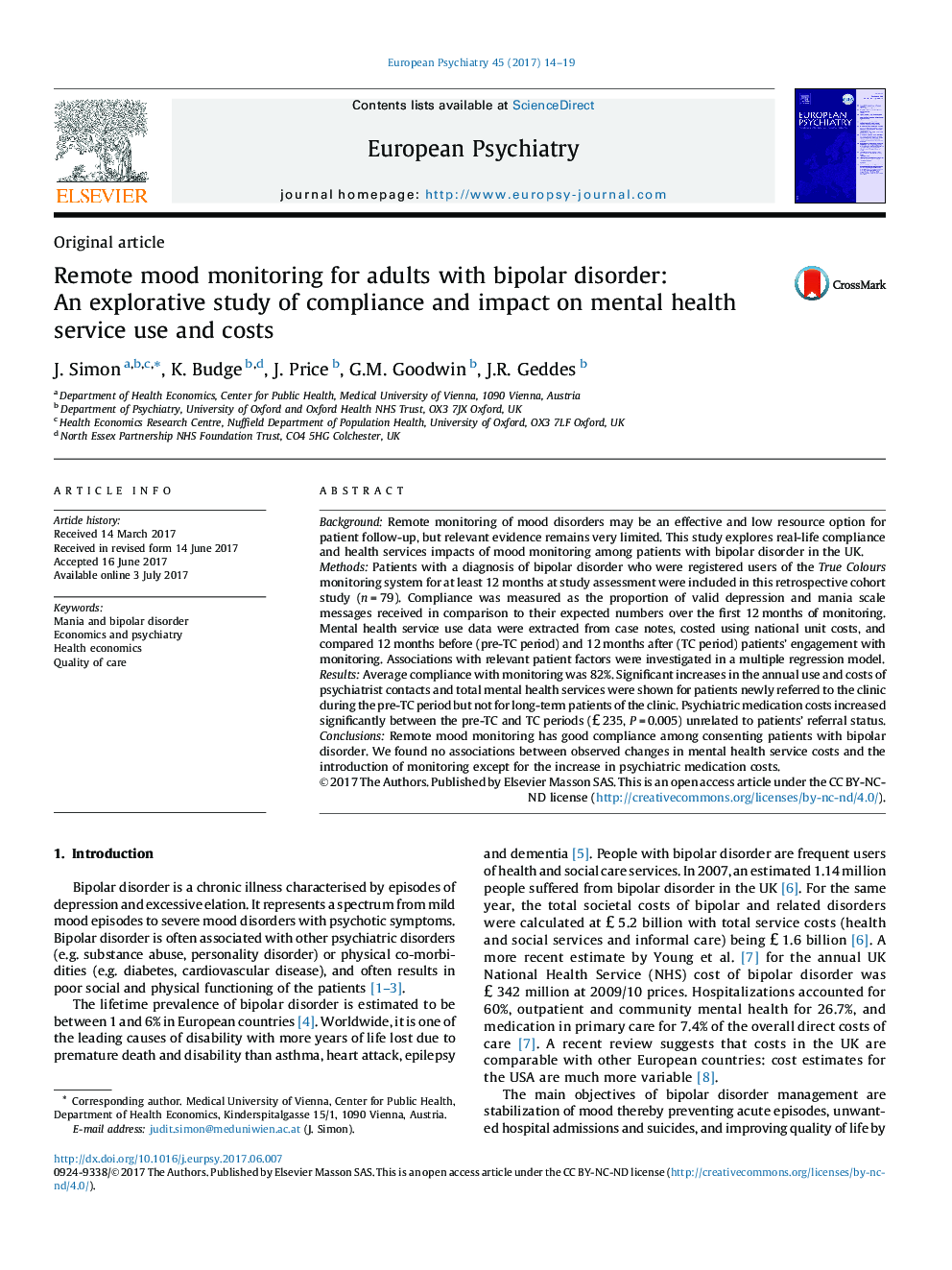| Article ID | Journal | Published Year | Pages | File Type |
|---|---|---|---|---|
| 5721353 | European Psychiatry | 2017 | 6 Pages |
BackgroundRemote monitoring of mood disorders may be an effective and low resource option for patient follow-up, but relevant evidence remains very limited. This study explores real-life compliance and health services impacts of mood monitoring among patients with bipolar disorder in the UK.MethodsPatients with a diagnosis of bipolar disorder who were registered users of the True Colours monitoring system for at least 12 months at study assessment were included in this retrospective cohort study (n = 79). Compliance was measured as the proportion of valid depression and mania scale messages received in comparison to their expected numbers over the first 12 months of monitoring. Mental health service use data were extracted from case notes, costed using national unit costs, and compared 12 months before (pre-TC period) and 12 months after (TC period) patients' engagement with monitoring. Associations with relevant patient factors were investigated in a multiple regression model.ResultsAverage compliance with monitoring was 82%. Significant increases in the annual use and costs of psychiatrist contacts and total mental health services were shown for patients newly referred to the clinic during the pre-TC period but not for long-term patients of the clinic. Psychiatric medication costs increased significantly between the pre-TC and TC periods (£ 235, P = 0.005) unrelated to patients' referral status.ConclusionsRemote mood monitoring has good compliance among consenting patients with bipolar disorder. We found no associations between observed changes in mental health service costs and the introduction of monitoring except for the increase in psychiatric medication costs.
